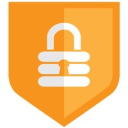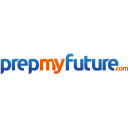The 7 best platforms for online skills testing (+ free alternatives)
The digitisation of skills tests is much more than just a strategy aimed at millennials: It reduces recruitment time, enhances companies' image and improves the experience of candidates, who can apply from home and at any time of day.
With the explosion of digital recruitment, automated processes thanks to the various recruitment tools, and algorithmic matching, online skills tests are helping to transform the recruiter's approach. Feeling and a good handshake are no longer enough to convince most employers. Nowadays they expect concrete results, reliable skills and measurable talent.
So there are a few questions to consider. How can we ensure that we obtain test results that are relevant to the decision-making process? How can we avoid a "homework on the table" atmosphere and preserve the candidate experience? How much of the recruitment budget should be allocated to these online tests, and what return on investment is there?
To help you assess skills, test software needs to be easy for everyone to use. The aim is to enable you to make an initial selection of candidates. Below, we present our selection of the 7 best solutions for setting up your online skills tests. And as a bonus, a few free alternatives. Let's get started!
Which recruitment testing platform should you choose? Comparison table
1 of 5
 Evalbox |  Examity |  Honorlock |  Mereos |  PrepMyFuture |
|---|---|---|---|---|
| For all companies | For all companies | For all companies | For companies with more than 1 employees | For all companies |
| See software | See software | See software | See software | See software |
| Learn more about Evalbox | Learn more about Examity | Learn more about Honorlock | Learn more about Mereos | Learn more about PrepMyFuture |
Evalbox, the simplicity of online MCQs
With its platform dedicated to online MCQs, Evalbox is aimed at both teachers and recruiters wishing to assess the knowledge of their students/candidates. Evalbox also assists assessors in creating and organising their tests.
Unlike the three previous solutions, this MCQ platform does not offer remote monitoring.
Evalbox features include
- simplicity: tests in MCQ format with automatic correction
- accessibility: tests can be taken by phone, tablet or computer
- dematerialisation: paper copies are taken care of

Evalbox
Examity, proctoring to the extreme
Founded in 2013, Examity is a pioneer in live test proctoring in the United States - a process in which a proctor supervises candidates via webcam. It has been securing online tests for schools and companies for almost ten years.
Some of Examity's features:
- live proctoring: candidates can be monitored live
- rigour: invigilators are trained by Examity over a period of several months
- availability: English-speaking support service available 24/7

Examity
Honorlock, the new entrant
Founded in 2017, Honorlock is leveraging its experience in online exam monitoring for educational institutions to offer secure tests to companies and training centres. Indeed, the latter use online tests to check learners' prior learning and, eventually, issue them with certification.
Honorlock features include
- anti-plagiarism: prevents test questions or subjects from being leaked onto the Internet
- speed: automatic verification of candidate identity in 60 seconds
- hybrid monitoring: automated or human monitoring
- availability: English-speaking support service available 24/7

Honorlock
Isograd Testing Services, innovative software
Isograd Testing Services is a technical skills testing platform that can be used to assess candidates during a recruitment campaign as well as employees or learners. It is aimed at companies, government departments and educational establishments.
The comprehensive Isograd Testing Services software combines AI and cutting-edge technology to provide you with a powerful solution tailored to all your needs.
Some of the features of Isograd Testing Services :
- customisation: take advantage of a catalogue of over 200 tests or create customised assessments
- Generative AI: to create relevant personalised tests or assessment reports
- situation scenarios and advanced practical exercises
- adaptive tests: difficulty levels can be adjusted according to the user's responses
Mereos, the French leader in flexibility
Founded in 2016, Mereos is the only French company offering a holistic assessment solution. Simply put, it takes care of organising online tests, remote monitoring, technical support, advanced results analysis and even offers to create skills tests with a network of experts.
Mereos works with more than 200 companies to recruit their future employees and with nearly 60 higher education establishments to set up their examinations or admission tests.
Mereos features include
- candidate-friendly: the Mereos platform does not require any downloads
- hyper-flexibility: a choice of 31 monitoring functions
- adaptability: can be integrated with any LMS
- scalability: serverless solution, up to 50,000 candidates simultaneously

Mereos
People In, the tailor-made skills testing tool
With People In, you can save a considerable amount of time in your recruitment process. This comprehensive and innovative recruitment test tool has all the functions you need to assess a candidate's key skills.
It's as simple as that: use the tailor-made test, distribute it, evaluate and respond to candidates in just a few clicks.
Thanks to these situational tests, you'll be able to detect the rare pearl and never miss out on hidden talent again!
Some of the features of People In :
- different types of tests: open questions, quizzes, case studies, videos, etc.
- customisation: 100% personalised tests tailored to your specific needs
- flexibility: automatic or manual analysis and evaluation of tests
- inclusion: totally anonymous tests until the candidate is assessed, to promote equal treatment
PrepMyFuture, the training platform
More commonly used by teachers as an additional teaching aid for their students, the PrepMyFuture platform can also be used to set up online skills tests.
Like Evalbox, the PrepMyFuture platform has no monitoring options.
Some of the features of PrepMyFuture :
- training: tests can be practised in real-life conditions
- accessibility: tests can be taken on a phone, tablet or computer
- data analysis: identification of candidates' weaknesses using analysis tools

PrepMyFuture
Completely free assessment testing tools
It's possible to recruit the best candidate for your job without blowing your budget on tests and analyses!
Why should you be interested in free solutions?
To test candidates at no cost, free tools are the solution. When every euro counts, subscribing to the services of a platform is not the priority. Start-ups, SMEs and companies on a tight budget can therefore also improve their recruitment using innovative methods without paying for very occasional use.
Examples of free platforms
Free sites that offer interesting possibilities for quick exercises:
-
Google Forms + Auto-Correction: not specifically HR software, but very practical for testing a profile with a basic MCQ. By activating the automatic correction, the employer immediately gets the result.
-
QCM Cam: 100% free, open source tool for creating online MCQs. No hidden costs, but fairly limited use.
You can also try the free versions of some paid-for software:
-
TestGorilla: the free version offers a number of pre-designed tests. Of course, to take advantage of all the platform's features and resources, you'll need to upgrade to a paid version.
-
Pymetrics: this neuroscience-based software offers free access to certain assessments. Clever mini-games designed to analyse candidates' soft skills.
-
ClassMarker: an online service for creating tests and automatically obtaining a score. Note that free use limits the number of tests per month.
The limitations of free solutions
The various software packages that you can use free of charge inevitably offer fewer functions than the paid versions. And no! You won't always be able to adapt the test to the needs of the workstation. You'll have to make do with what already exists.
In terms of security, you can't be sure of getting a reliable result either, because these platforms don't offer anti-cheat monitoring. All you need is a mobile phone and a web search.
Finally, they generally don 't integrate with your application management software, which complicates your follow-up and wastes your time.
How do you choose your recruitment test software? Criteria to evaluate
Your test software will be your compass. You're going to trust it to recruit your staff. Once you've got the hang of it, it needs to be reliable and predictable, with no nasty surprises. So how do you choose the most suitable software for your recruitment? Take stock of :
-
Alignment with the company's needs: what types of positions do you need to fill? And what are the associated skills? Should technical skills be tested? Soft skills? What is the volume of applications to be examined?
-
Usage costs and ROI: depending on your needs, decide whether it's better to take out a monthly subscription or pay per use. What's more, how much time will your test software save you compared with before?
-
Reliability and scientific validity: skills tests validated by HR or personality tests carried out by psychologists. The results must be reliable in order to predict the performance of the candidate being assessed for their future position.
-
anti-cheating monitoring: to check that candidates are playing fair. Some software packages incorporate an automated monitoring system using video images taken by the webcam and sound from the microphone to detect suspicious behaviour.
What are the typical recruitment tests to use?
The wide range of professional tests available on the market means that you can carry out professional assessments that are genuinely tailored to the post to be filled. Depending on your needs, you can direct candidates towards :
-
technical skills tests (to test programming language, office automation or analytical skills, for example).
-
psychometric and soft skills tests (to assess personality traits, motivations and behaviour).
-
cognitive tests (to observe logical reasoning, memory, decision-making, etc.).
-
language skills tests.
💡 Please note: to successfully recruit your future employee, it is essential to ensure the validity and reliability of the tests you give them. Imagine if you found out later that the new employee was in fact not at all suited to the job? An assessment test is all very well, but it mustn't be based on hot air. It's one of the key elements you can rely on to maintain a high success rate when recruiting, and avoid frequent turnover.
What are the prospects for skills testing in 2025 and in the long term?
Online skills testing is evolving rapidly, and it's not going to stop. Certain trends are clearly likely to continue to shake up the habits of recruiters and candidates.
Artificial intelligence in particular, with its performance predictions, is being used more and more to facilitate sorting and identify the best candidates before the interview. Gamification and adaptive tests are also changing what we know about traditional tests, with a playful aspect or questions that evolve according to the answers. These are two aspects that allow us to better assess the candidate's real level.
So, is everything perfect? Not quite! These advances also raise some essential questions. How can we ensure that the algorithms do not produce discriminatory biases? Who will be able to use the personal data generated by the tests? And above all, how far should AI be allowed to take part in hiring a candidate before the human value of recruitment is lost?
It will certainly be necessary to strike a balance between technology and the human element if recruiters are to retain their expert analysis. If tomorrow an AI decided on the best candidate for you, would that really be good news?
Article translated from French